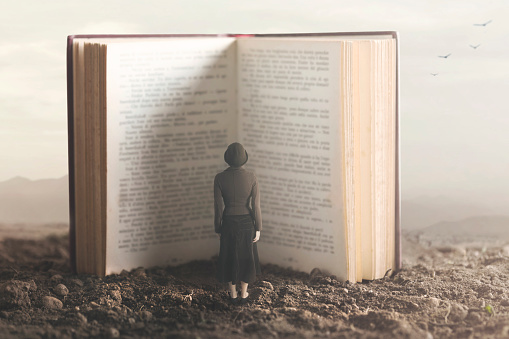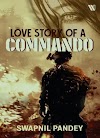Master the Art of Reading
Learn how to read a book or novel effectively by choosing something you're genuinely interested in, reading slowly and carefully, actively engaging with the text, taking notes, considering the context, discussing with others, and reflecting on what you've read. Improve your reading skills with tips and tricks.
Reading a book or novel can be a wonderful and enlightening experience, but it's not always easy to know where to start. Whether you're a seasoned reader or a newcomer to the world of literature, there are a few key things to keep in mind to help you get the most out of your reading experience.
First and foremost, it's important to choose a book or novel that you're truly interested in. Whether it's a classic piece of literature or a popular bestseller, reading something that you're genuinely excited about will make the experience much more enjoyable.
When you start reading, it's important to take your time and to pay attention to the details. This means reading slowly and carefully, and taking note of any passages or characters that stand out to you. As you read, try to picture the scenes and characters in your mind, and think about how they relate to the overall story.
Another important aspect of reading is to actively engage with the text. This can mean asking yourself questions as you read, making connections to other books or pieces of literature you've read in the past, or even writing in the margins or underlining key passages.
One way to actively engage with a book is by taking notes as you read. This can help you keep track of important details and themes, and can also serve as a useful reference as you continue to read. It can also help you to remember important information from the book.
In addition to engaging with the text, it's also important to consider the context in which the book was written. This means looking at the historical, cultural, and social context in which the book was written, and thinking about how this might have influenced the author's choices and themes.
Another way to engage with the book is by discussing it with others. Whether it's a book club or a simple conversation with a friend, talking about what you're reading can help you gain new perspectives and insights, and can also make the experience more enjoyable.
Genres of Books and which one is suitable for you?
Reading is a wonderful pastime that offers something for everyone. One of the great things about books is that they come in a wide variety of genres, each with its own unique style and appeal. In this blog post, we'll take a look at some of the most popular genres of books and provide examples of books that fall into each category. Additionally, we'll discuss which types of books are most suitable for different types of readers.
- Fiction: Fiction is one of the most popular genres of books and includes stories that are made up by the author. Examples of popular fiction books include "To Kill a Mockingbird" by Harper Lee, "The Great Gatsby" by F. Scott Fitzgerald and "Harry Potter" series by J.K. Rowling. Fiction books are suitable for readers of all ages and interests, as they offer a wide range of stories and styles.
- Non-Fiction: Non-fiction books are based on real-life events and information. They can be informative, educational, or even inspirational. Examples of popular non-fiction books include "The 7 Habits of Highly Effective People" by Stephen Covey, "The Immortal Life of Henrietta Lacks" by Rebecca Skloot and "The Almanac of American History" by Richard N. Current. Non-fiction books are great for readers who are interested in learning about specific subjects or want to gain a deeper understanding of the world around them.
- Mystery/Thriller: Mystery and thriller novels are both genres that focus on suspense and intrigue. They often involve a crime or puzzle that needs to be solved. Examples of popular mystery books include "Murder on the Orient Express" by Agatha Christie, "The Girl with the Dragon Tattoo" by Stieg Larsson and "The Da Vinci Code" by Dan Brown. These types of books are perfect for readers who enjoy a good mystery and can't get enough of the thrill of the chase.
- Fantasy: Fantasy books are set in a world that is different from the real world. They often involve magic, mythical creatures and other supernatural elements. Examples of popular fantasy books include "The Lord of the Rings" by J.R.R. Tolkien, "The Chronicles of Narnia" by C.S. Lewis and "The Hunger Games" by Suzanne Collins. Fantasy books are great for readers who enjoy escaping into a world of imagination and wonder.
- Romance: Romance novels focus on love stories and the emotions and relationships of the characters. Examples of popular romance books include "Pride and Prejudice" by Jane Austen, "Outlander" by Diana Gabaldon and "The Notebook" by Nicholas Sparks. Romance novels are perfect for readers who enjoy a good love story and want to experience the emotions of the characters.
- Children's literature: Children's literature is literature written specifically for children. Examples of popular children's literature include "The Cat in the Hat" by Dr. Seuss, "Harry Potter" by J.K. Rowling and "Where the Wild Things Are" by Maurice Sendak. Children's literature is suitable for children and young adults.
In conclusion, there are many different genres of books to choose from, each with its own unique style and appeal. Whether you're looking for a mystery, a love story, or a fantasy adventure, there's a book out there that's just right for you. By understanding the different types of genres, you can find the perfect book to suit your interests and preferences.
When you finish reading a book, take a moment to reflect on what you've read. Think about the themes and ideas that stood out to you, and consider how they relate to your own life and experiences.
Finally, if you're looking to improve your reading skills, there are a few simple things you can do to help. One is to read more. The more you read, the more you'll be exposed to different writing styles, genres and vocabulary. Another is to read a variety of books and literature. This will help you to develop a wide range of reading skills and will also expose you to different ways of thinking and writing.
Which books to begin with 🤔?
Reading is a valuable habit that can be cultivated with the right approach. If you're looking to master the habit of reading, there are several books that can help you get started.
- "The Power of Habit" by Charles Duhigg: This book explores the science behind habit formation and provides practical strategies for developing new habits. It's a great place to begin if you're looking to build a reading habit as it will give you a solid understanding of how habits work and how you can use that knowledge to your advantage.
- "How to Read a Book" by Mortimer Adler and Charles Van Doren: This classic guide provides a comprehensive overview of how to read effectively. It covers everything from how to choose a book to how to analyze its content, and is an essential resource for anyone looking to master the habit of reading.
- "The Art of Reading" by Mortimer Adler: This book is a follow-up to "How to Read a Book" and provides more in-depth advice on how to read and understand different types of literature. It's perfect for those who are looking to expand their reading horizons and explore new genres.
- "The 5 AM Club" by Robin Sharma: This book is a fiction novel but it covers the idea of early rising and how to develop a morning routine that sets the tone for the day. This can include reading and can help you to develop a reading habit if you make it a part of your morning routine.
- "The Reading Promise: My Father and the Books We Shared" by Alice Ozma: This memoir is about a girl and her father who made a promise to read together for 100 consecutive nights and ended up reading together for nearly a decade. It's a heartwarming story that will inspire you to make reading a part of your daily routine.
Overall, these books are a great starting point for anyone looking to master the habit of reading. They cover a variety of topics and provide practical advice for developing a reading habit that works for you.
In conclusion, reading a book or novel can be a truly enriching experience, but it's important to approach it with an open mind and a willingness to engage with the text. By choosing a book that interests you, reading slowly and carefully, actively engaging with the text, taking notes, considering the context, discussing with others and reflecting on what you've read, you can get the most out of your reading experience.














0 Comments